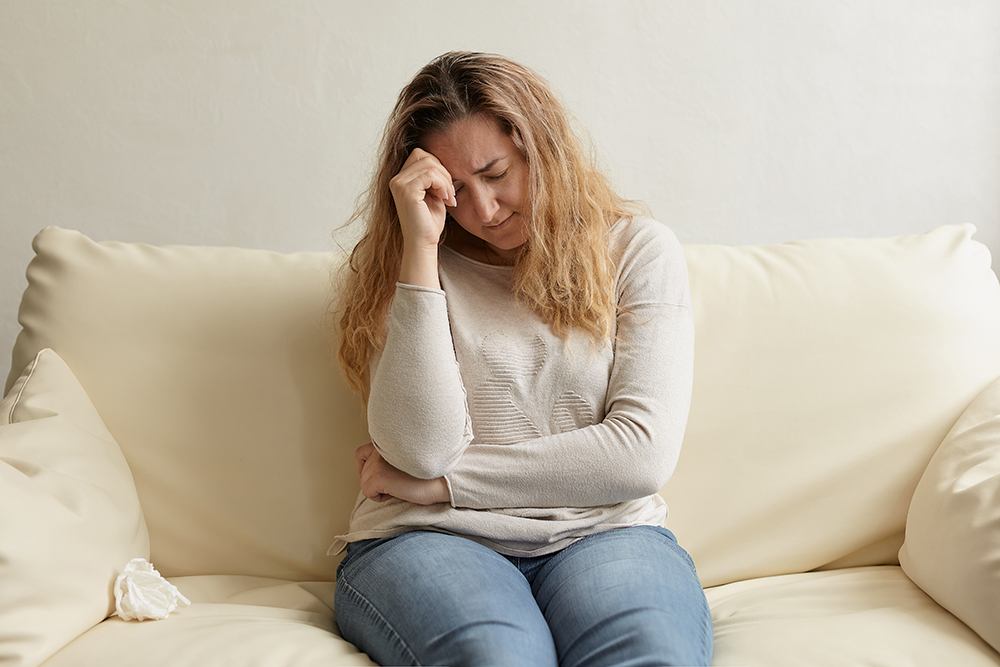Grief is a multifaceted experience that takes a toll on your mind and body. In the aftermath of loss, pain can manifest in profoundly physical ways, from fatigue and aches to chest tightness and immune dysfunction. At Hemet Valley Recovery Center & Sage Retreat, we understand how powerful and complex grief can be, especially when it goes unrecognized or untreated.
Why Grief Hurts Physically
Grief is a stressor that floods the body with stress hormones like cortisol and adrenaline. Over time, this physiological response can lead to chronic inflammation, sleep disturbances and weakened immunity. If the loss is especially traumatic – such as the death of a spouse or child – your nervous system can enter a prolonged “fight-or-flight” mode, contributing to physical symptoms that mirror serious illness.
Moreover, grief disrupts normal routines. As a result, people may skip meals, neglect medications or stop exercising. Their bodies often pay the price.
Common Physical Symptoms of Grief
Everyone grieves differently, but symptoms like these can be especially distressing for older adults or those already living with chronic health conditions. That’s why holistic grief treatment is essential.
- Fatigue or low energy: Persistent exhaustion even after rest is one of the most reported physical symptoms.
- Insomnia or disrupted sleep: Many people experience racing thoughts, nightmares or wake up multiple times during the night.
- Aches and pains: Grief can cause muscle tension, joint pain and headaches – especially in your neck, shoulders and lower back.
- Chest pain or tightness: Sometimes called “broken heart syndrome,” this can feel like a heaviness or pressure in your chest.
- Digestive issues: Grief may lead to nausea, loss of appetite, indigestion or even vomiting.
- Weakened immune response: People in mourning are more susceptible to infections, colds and inflammation.
- Heart palpitations or dizziness: The emotional impact of grief can mimic panic attacks or create irregular heartbeat patterns.
- Cognitive fog: Also called “widow brain,” this condition includes forgetfulness, confusion and trouble concentrating.
Grief Is Not Linear
Despite what popular culture suggests, grief doesn’t follow a tidy sequence of stages. You may be on an even keel one day, only to be completely overwhelmed the next. Triggers such as anniversaries, smells, songs or memories can unexpectedly reignite the pain.
These ups and downs can leave you feeling ashamed for not moving on quickly enough. But grief has no expiration date. It changes with time, but it doesn’t disappear.
Healthy Ways to Cope With Loss
People who attempt to bypass grief by numbing themselves with drugs and alcohol often stall their healing or create new problems in the form of addiction, depression or deteriorating physical health.
Here are healthier ways to support your healing and avoid getting trapped in a cycle of dependency.
1. Talk to Someone You Trust
Reach out to a counselor, grief support group or a trusted friend. Talking through your emotions is essential for processing your loss.
2. Prioritize Sleep and Nutrition
Try to get consistent rest and fuel your body with nutrient-dense meals. Grief may make self-care feel unattainable, but small acts like eating one healthy meal can make a significant difference.
3. Move Your Body
Gentle movements like walking or yoga can regulate your mood, reduce inflammation and improve sleep quality.
4. Create Rituals
Honoring your loved one with meaningful rituals – such as doing their favorite hobby, journaling or planting something in their memory – can create space for healing.
5. Engage in Calming Activities
Meditation, breathing exercises and even hobbies like gardening or painting can ground you when emotions feel overwhelming.
6. Seek Professional Support
Consider speaking to a medical professional if persistent grief interferes with your daily functioning. Complicated grief is treatable, and you don’t have to suffer alone.
Healing From Loss Requires Emotional and Physical Care
If you’re grieving and routinely use alcohol or drugs to cope, you’re not alone. This response is more common than you think, especially among older adults who have lost a spouse or lifelong partner.
At Hemet Valley Recovery Center & Sage Retreat, we offer a medically supervised, trauma-informed environment where you can grieve, heal and reclaim your well-being. As a fully accredited hospital-based detox and treatment center, we treat substance use and the physical and emotional toll grief takes on the body in one location.
Reach out to us today and let us help you find your way forward.


